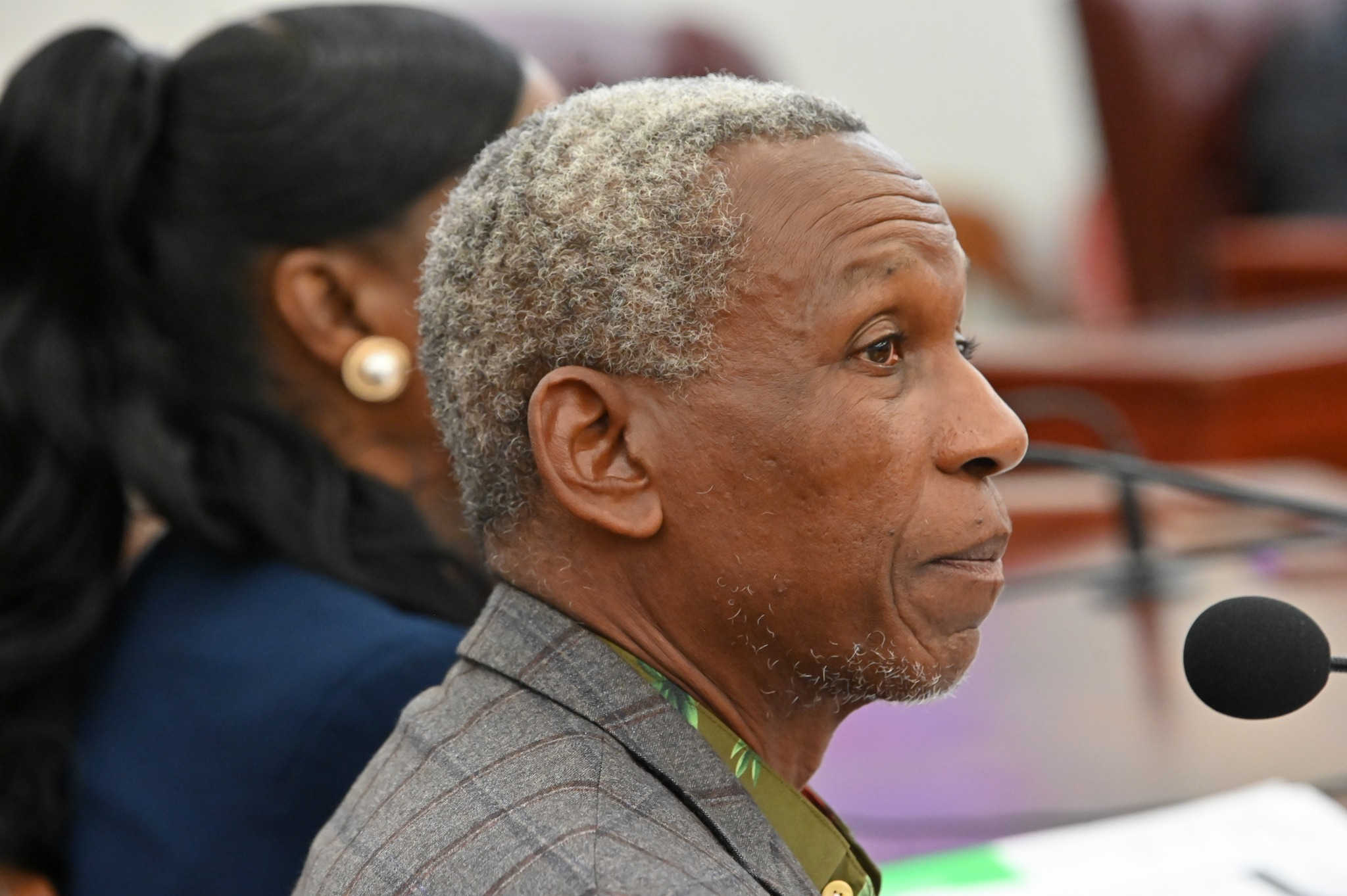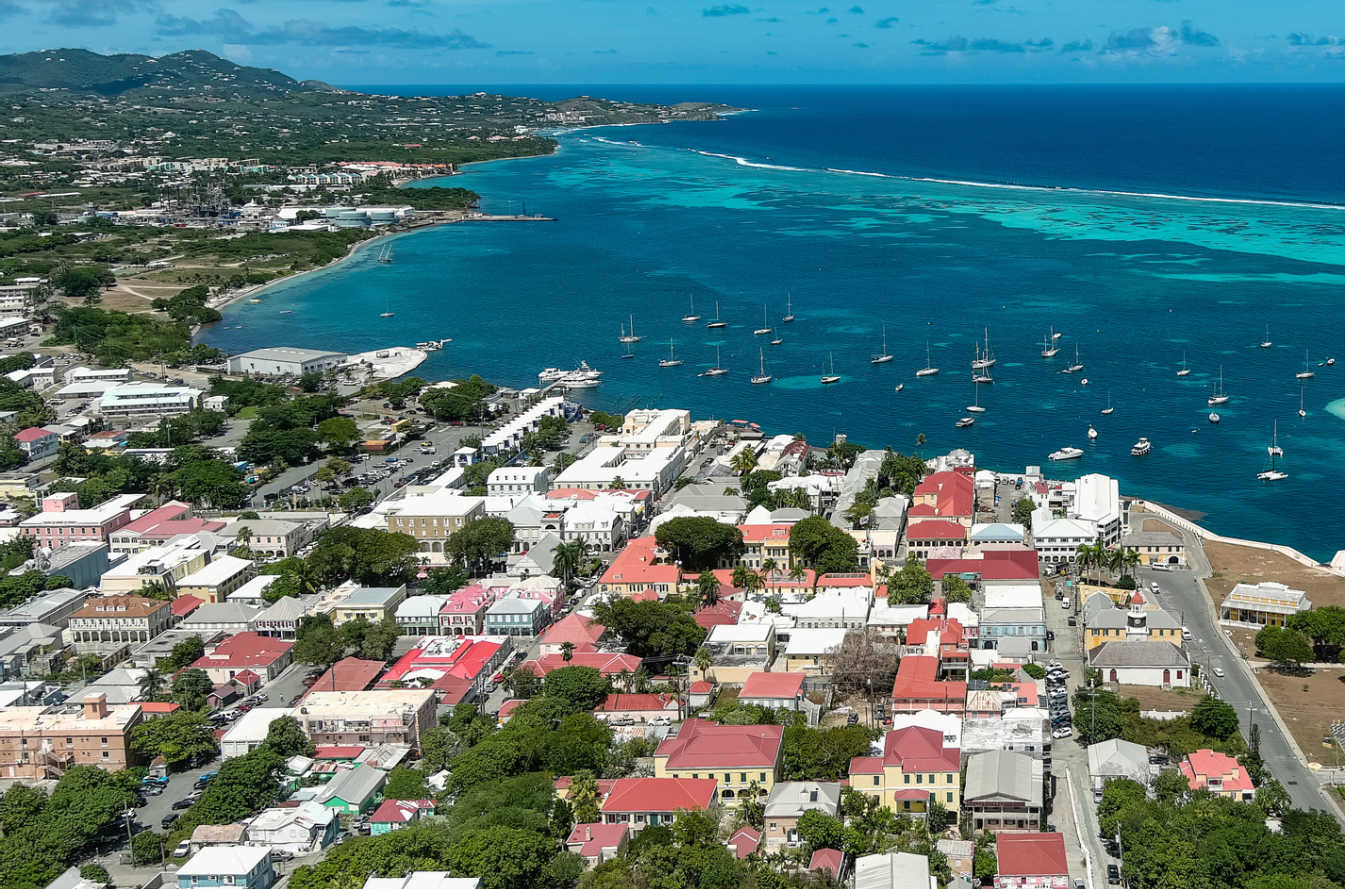Business
Financial Struggles at viNGN: $36 Million Loan Repayment in Jeopardy, CEO Reveals

The Virgin Islands Next Generation Network (viNGN) faces severe financial hurdles, with its management expressing doubts about repaying a substantial $36.8 million loan from the Public Finance Authority (PFA). Originally issued as a bond in 2011 to establish the network, the funding was converted into a loan by 2012, a critical detail that viNGN’s CEO, Stephan Adams, claims was poorly communicated to him.
In a recent testimony before the Committee on Budget Appropriations and Finance, Adams highlighted the lack of a fixed interest rate or a clear amortization schedule for the loan, stressing that viNGN’s financial state precludes any repayment without external aid. “Based on our current fiscal standing, viNGN does not have, and does not foresee, the ability to repay the $36.8 million loan without assistance,” Adams stated, indicating a dire financial forecast for the network.
Efforts to secure loan forgiveness have been unsuccessful, with the PFA advising viNGN to pursue federal grants. However, Adams noted that a promising $15 million USDA grant had already been allocated elsewhere, closing off a potential avenue for relief. He expressed frustration over the opacity surrounding the loan’s terms, which has complicated their financial planning.
The lack of legislative support was apparent when Senator Donna Frett-Gregory addressed viNGN’s plea for local help in managing the debt. She emphasized the burden on taxpayers and promised to look into the precise debt figures and repayment methods.
Adding to these challenges, Adams conceded to Senator Dwayne DeGrass that viNGN has consistently operated at a loss since its inception and anticipates reduced revenues this fiscal year. Yet, he remains committed to improving operational efficiencies to mitigate financial pressures, including ongoing efforts to lower pricing to benefit the community. “We’re still cleaning up a mess that’s existed for 10 years,” Adams remarked, indicating ongoing struggles in steering viNGN towards stability.
Business
Vivot Group Files for Bankruptcy Amid Financial Crisis, Lender Lawsuit

The Vivot Group of Companies, a prominent full-service commercial construction firm in the U.S. Virgin Islands, has filed for bankruptcy, according to court documents obtained by the Consortium.
Jean Patrick Vivot, president of the conglomerate, is requesting joint administration for the bankruptcies filed individually by each of the ten companies in the group. These companies include Vivot Equipment Corporation, Eleven Construction, PSI Tire Supply, Axis Development, TTA Logistics, Valdez Industrial Group, Caribbean Crane & Rigging, Vivot Industries Virgin Islands, Abacus International, and Vivot Equipment. The group collectively owns approximately $64 million worth of equipment, tools, and vehicles, alongside an additional $19 million in real property. However, they owe just over $56 million in secured debt, with the primary creditor being Touchmark National Bank of Georgia, to whom Vivot reportedly owes $31 million. The group also has a reported $13.5 million in unpaid taxes.
Mr. Vivot attributed the financial distress to the 2021 bankruptcy of Limetree Bay Services, which left the Vivot Group with $14.5 million in unpaid receivables. “Limetree’s liquidating bankruptcy, and its subsequent failure to pay the Limetree Receivables in full, caused the Vivot Group to endure significant financial and operational strain,” Mr. Vivot stated in his declaration. He further explained that a consensual out-of-court debt restructuring was deemed unfeasible after discussions with secured lenders.
Compounding the financial woes, Touchmark National Bank filed a lawsuit in early April, seeking to appoint a receiver for the Vivot Group. The lawsuit alleges that Vivot failed to repay debts and improperly reallocated assets designated as loan collateral. Touchmark claims that some equipment used as collateral was leased to third parties without consent, violating loan agreements.
The lawsuit details nine loans taken by Vivot companies between 2016 and 2019, with other group companies guaranteeing the loans and pledging all assets as collateral. Touchmark’s lawsuit reveals that a November 2023 spreadsheet indicated some collateral assets had been moved from St. Croix to other locations, including Puerto Rico and the mainland U.S. This movement and unauthorized leasing of equipment allegedly jeopardize the collateral’s value and hinder the bank’s ability to locate and liquidate it. Additionally, the bank asserts that Vivot violated loan agreements by allowing tax liens on properties used as collateral.
Touchmark has filed 95 complaints against the Vivot Group and Mr. Vivot, seeking a court judgment, the appointment of a receiver, and potential liquidation of collateral if the debtors fail to repay their obligations.
The bankruptcy filing temporarily halts Touchmark’s recovery efforts. Under Chapter 11 bankruptcy, the Vivot Group aims to reorganize its business, repay creditors over time, and continue operations. As “debtors-in-possession,” the group has requested court permission to use available cash for operating expenses.
For now, the Vivot Group is not in immediate danger of ceasing operations, but industry stakeholders are closely monitoring the situation as one of St. Croix’s largest construction service providers navigates its financial challenges.
Business
St. Croix Administrator Aims to Overturn New Trash Law Fines for Christiansted Business Owners

St. Croix Administrator Samuel Sanes is advocating for the rescission of fines levied against Christiansted business owners who were cited for violating a recently enforced trash law. These business owners claim they were unaware of the regulations. Mr. Sanes also seeks to engage with V.I. Waste Management Authority (WMA) officials to reconsider the enforcement strategies for this statute.
On May 23, WMA enforcement officers approached Christiansted business owners about their waste disposal methods. Upon learning that these businesses were using public trash receptacles, officers issued citations for violating VI Code Title 19, subsection 1563, which requires businesses to use the Anguilla Landfill or a commercial trash hauler. The sudden enforcement left many local business owners, including Maria Banwaree of Unique by Maria Banwaree Art Studio and Boutique, feeling distressed. Ms. Banwaree stated she was unaware of the law and felt coerced into signing the citations under threat of arrest. A week later, Mr. Sanes visited her store to personally apologize for the incident.
“He said in the name of the VI government he wants to apologize. He said that a couple of times. He says he feels so bad because we the people in Christiansted don’t need this,” Ms. Banwaree told this reporter. According to her, Mr. Sanes approached her following a meeting with WMA Executive Director Roger Merritt.
“I’ve spoken numerous times to the executive director for Waste Management, basically asking him to see if the charges can be dropped. I truly believe that a more comprehensive approach should have taken place. In other words, advise the business owners on the rules and regulations,” Mr. Sanes said.
Mr. Sanes noted the conflicting narratives—business owners claiming ignorance of the law, while WMA insists that a town hall meeting and other warnings were issued. He recommended to Mr. Merritt that all citations and fines be annulled, followed by a months-long informational campaign to ensure compliance among local businesses.
While proposing changes to the enforcement strategy, Mr. Sanes also questioned the practicality of the law, especially for very small businesses like Boardwalk vendors who generate minimal trash. “Are we going to demand that one vendor, which is a table, actually get a hauler, a trash hauler? For what, the possibility of a small bag of trash?” he asked. “It’s something that we really need to go back and explore.”
Mr. Sanes believes the law should be reconsidered, given the financial hardships Christiansted businesses have faced due to prolonged road repairs and closures. “It is a hardship for many small businesses at this time. So that’s one of the reasons why I approached Waste Management and I told them, let’s start all over again,” he said.
In response to her interaction with Mr. Sanes, Ms. Banwaree decided to collaborate with other nearby businesses to collectively engage a trash hauler. “We are organizing ourselves in advance, because we understand if we have information that we need to follow the law and follow the rules. But the thing is, they come before saying anything to us, just with the fine,” she said. She remains hopeful that the original fine will be reversed. “I hope that Mr. Sanes says the truth and I hope that the government really takes action,” Ms. Banwaree said.
In contrast, another business owner, Jan Mitchell of Mitchell Larsen Studio, who also received a citation and fine, was unaware of any efforts by Mr. Sanes to rescind the fines or any updates on the situation. “Maybe the whole thing will just pass and it’ll be fine with me. I hate making waves, I’m just not that kind of person, but I’m not going to not do anything if it calls for it. So we’ll see—it’ll play out,” she said.
As of press time, Mr. Merritt has not responded to numerous requests for comment, nor has WMA issued an official statement on the matter.
Business
Kingshill Funeral Home Opens in St. Croix, Bringing Hope and New Beginnings to Grieving Families

Residents of St. Croix now have a new option for final arrangements with the opening of Kingshill Funeral Home. Under the leadership of Nikki Brooks, the funeral home, located at 303 Clifton Hill in Kingshill, held an open house recently to introduce its services to the public.
Ms. Brooks, who returned to St. Croix to start this venture, shared her journey, highlighting the challenges she faced, such as a leaking roof and stained tiles. “Coming home was hard because I’m starting over at 52,” she said. Despite these hurdles, she credited determination and faith for her perseverance, stating, “I played that song, ‘The Goodness of God,’ because God didn’t put me in my space to do nothing.”
Kingshill Funeral Home offers a range of funeral packages starting at $2,300, designed to meet the diverse needs of the community. The funeral home aims to provide reliable and affordable services, accommodating individual preferences and financial considerations.
The facility operates Monday through Friday from 8:00 a.m. to 6:00 p.m., Saturdays from 8:00 a.m. to 1:00 p.m., with appointments available on Sundays and 24-hour phone availability for urgent needs.
Ms. Brooks emphasized the importance of personalization in their services. “I believe in celebrating the life of the loved one. That’s why when you walk around here, it’s a blank canvas. What do you desire for your loved one? We created it this way so that every human lived a life,” she explained. The funeral home prides itself on providing a seamless experience for families during the challenging process of arranging a funeral.
In addition to standard services, Kingshill Funeral Home offers bilingual services and materials. “Everything we have in English, we have in Spanish, even to the contract, so the community can read along [with] what everyone is saying,” Ms. Brooks said.
Ms. Brooks also highlighted the ecumenical nature of their offerings, catering to various denominations and spiritual needs. “Some people can have many denominations…some people are more spiritual,” she noted, ensuring that the funeral home can help mourners “create what they need for their loved one to celebrate them.”
Pre-planning funerals is another aspect Ms. Brooks emphasized, comparing it to planning birthdays or trips. She pointed out that pre-planning allows individuals to organize funerals to their preferences, alleviating financial strain and stress for surviving family members.
For more information or to arrange services, interested parties can contact Kingshill Funeral Home at (340) 773-3310 or via email at [email protected]. Ms. Brooks reiterated her belief that Kingshill Funeral Home will offer those struggling through one of life’s most difficult periods ease, comfort, and valuable assistance in making final arrangements for their departed loved ones.
-

 Education11 months ago
Education11 months agoCTE Board Enthusiastic About New Curriculum Standards, Yet Anxious Over Apprenticeship Support
-

 Crime11 months ago
Crime11 months agoRegistered Sex Offender Detained for Illegal Firearm Possession During Annual Surveillance Drive
-

 Development3 months ago
Development3 months agoCosts Surge as Donoe Estates Housing Project Resumes with New Contractor
-

 Crime9 months ago
Crime9 months agoSt. John’s Westin Resort Scene of Armed Robbery, Prompting Heightened Police Vigilance
-

 Videos2 years ago
Videos2 years ago2022 Gubernatorial Election: Voters Speak Out
-

 Crime11 months ago
Crime11 months agoUnraveling the Home Invasion in St. John: Suspect Held on $100,000 Bail
-

 Videos2 years ago
Videos2 years agoGubernatorial Teams Celebrate St. Croix’s Bull & Bread Day
-

 Videos2 years ago
Videos2 years agoBehind the Lens: Meet Kareem of Funtime Jetski & Boat Charters





